Asking a question...How to deal with a conundrum....
Posted on
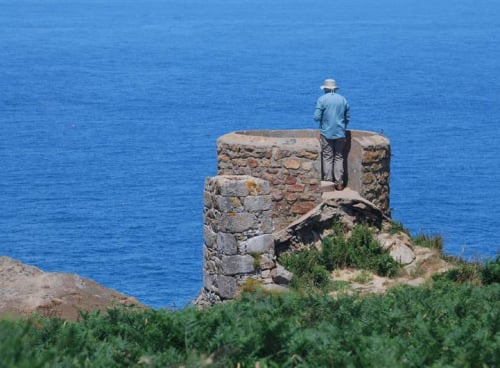 Many business owners are faced with a marketing conundrum. Ours is how to talk about our books and greeting cards in a way that people will actually find interesting!
Many business owners are faced with a marketing conundrum. Ours is how to talk about our books and greeting cards in a way that people will actually find interesting!
Since 1995 and the rise of the internet alongside search engines like Altavista and then Google searching online for answers to this question is very tempting and can become a little obsessive. Sadly it always leads to the same outcome. There is a great deal of 'advice' but it is largely different people all saying the same things with little substance. There are some very helpful groups, but I remain perplexed.
In September 2015 I launched my grandfather's autobiography. It is told with depth and humour and details his life as a civil engineer and tunnelling ‘name’. It is called It's Warmer Down Below. As with all new authors and publishers I want to sing about this book from the rooftops. Since then three more books and a whole crop of greeting cards have been added to the list and they also stimulate this burning desire to yodel about them. The trouble is, so many people are yodelling it doesn't come across right. It comes across as a bit of a yawn. But it's also tricky, as people say things like 'Gosh I've not heard of this before, how fascinating!' once they have had a direct conversation about them.
The modern conundrum is how to say stuff in a way that gets through the treacle/jabber of information overload and that also gets through to the discerning target audience that is not obsessed with soap stars and drunken antics of reality stars.
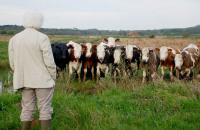 Tell your story say the web gurus. People want to hear the human side. Jolly good, but there are so many stories to tell. Which do they mean? The books tell their own stories, and that's the true importance. The story of the photos behind the greeting cards is often complex, but a card is chosen for what it means to the sender and their relationship with the recipient, not because of the story behind the taking of the photo!
Tell your story say the web gurus. People want to hear the human side. Jolly good, but there are so many stories to tell. Which do they mean? The books tell their own stories, and that's the true importance. The story of the photos behind the greeting cards is often complex, but a card is chosen for what it means to the sender and their relationship with the recipient, not because of the story behind the taking of the photo!
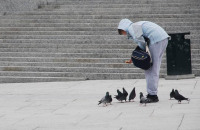 Say how you've helped someone in their life. These are books and cards not orthopaedic supports!! Having said that I do know of two female civil engineering students who have benefited hugely from having my grandfather's book. I anticipate hearing more similar stories, but a blog post that doth not make!! One of these students is now aspiring to be President of the Institution of Civil Engineers.
Say how you've helped someone in their life. These are books and cards not orthopaedic supports!! Having said that I do know of two female civil engineering students who have benefited hugely from having my grandfather's book. I anticipate hearing more similar stories, but a blog post that doth not make!! One of these students is now aspiring to be President of the Institution of Civil Engineers.
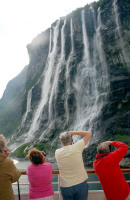 Come up with five things people must think of when publishing a book or greeting cards. Show off your expertise. Become the go-to person in publishing. That wouldn't be arrogant in the slightest, would it!! How many thousand publishers are there, most of whom have a far better clue than I/we do?! I am, however, contemplating chuntering on about things I have learned in these fairly early days as an alternative approach.
Come up with five things people must think of when publishing a book or greeting cards. Show off your expertise. Become the go-to person in publishing. That wouldn't be arrogant in the slightest, would it!! How many thousand publishers are there, most of whom have a far better clue than I/we do?! I am, however, contemplating chuntering on about things I have learned in these fairly early days as an alternative approach.
 Get your SEO (search engine optimisation aka magic bullet) streamlined so you come up on page 1 of Google in searches. I refer back to the previous point and arrogance... thousands of publishers cannot all sit on page 1 of Google!
Get your SEO (search engine optimisation aka magic bullet) streamlined so you come up on page 1 of Google in searches. I refer back to the previous point and arrogance... thousands of publishers cannot all sit on page 1 of Google!
If anyone reading this could answer the question (there should be a comments box below) about what they would look for from a page such as this, it would be an enormous help and could hopefully end up by making things a bit less ‘formal’.
Just ‘because’, there’s a bit on the books and greeting cards below, exploring the backstory of what they are about.
It’s Warmer Down Below: the autobiography of Sir Harold Harding 1900-1986
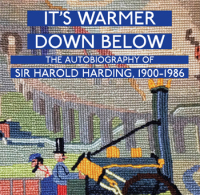 As is fairly obvious from the dates, the author (HJBH) finished his writing of the book over 30 years ago. He had been asked to write it by several publishers in the 1970’s and had put together what he expected to be a tale of an interesting life by the time of Margaret Thatcher’s premiership. Times were not good for publishing (Tim Waterstone was dreaming about his new store, it had yet to open and change book buying) and he was told, with regret, that there wasn’t enough sex in the book to make it worth going on with. After all the effort, this was a tough response and of course he lost momentum. At the same time a resurgence of interest in the Channel Tunnel began and he dedicated his efforts to lobbying politicians and journalists about the value of a twin bored tunnel instead of a rather surreal idea of a bridge. He and my father discussed his book and my father said that he would publish it ‘some day’, which was enough to save it from the bin.
As is fairly obvious from the dates, the author (HJBH) finished his writing of the book over 30 years ago. He had been asked to write it by several publishers in the 1970’s and had put together what he expected to be a tale of an interesting life by the time of Margaret Thatcher’s premiership. Times were not good for publishing (Tim Waterstone was dreaming about his new store, it had yet to open and change book buying) and he was told, with regret, that there wasn’t enough sex in the book to make it worth going on with. After all the effort, this was a tough response and of course he lost momentum. At the same time a resurgence of interest in the Channel Tunnel began and he dedicated his efforts to lobbying politicians and journalists about the value of a twin bored tunnel instead of a rather surreal idea of a bridge. He and my father discussed his book and my father said that he would publish it ‘some day’, which was enough to save it from the bin.

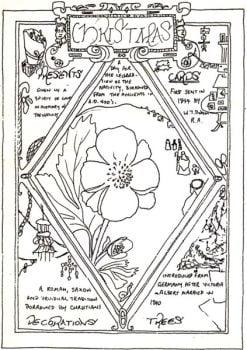 We have sent cards out every year since 1983 that I have designed and usually have really enjoyed the whole process. Over the years the techniques have changed and so have the subjects, but the motives have remained constant. It is really why we have started to make and sell greeting cards. We have a beautiful world in which we live. It sparkles with magical experiences and glimmers with hidden or ostentatious wonders. Throughout the festive season we are bombarded with consumer items and the idea of gifts and presents seems rather tainted at times by the ravenous hordes of companies and shareholders demanding ever higher and greater profits. There are important by-products of this consumer society since many jobs rely on the ability to sell, but it is possible to have experiences in a different way. By focusing on the positive nurturing things that we can do, we make it a richer and happier experience.
We have sent cards out every year since 1983 that I have designed and usually have really enjoyed the whole process. Over the years the techniques have changed and so have the subjects, but the motives have remained constant. It is really why we have started to make and sell greeting cards. We have a beautiful world in which we live. It sparkles with magical experiences and glimmers with hidden or ostentatious wonders. Throughout the festive season we are bombarded with consumer items and the idea of gifts and presents seems rather tainted at times by the ravenous hordes of companies and shareholders demanding ever higher and greater profits. There are important by-products of this consumer society since many jobs rely on the ability to sell, but it is possible to have experiences in a different way. By focusing on the positive nurturing things that we can do, we make it a richer and happier experience.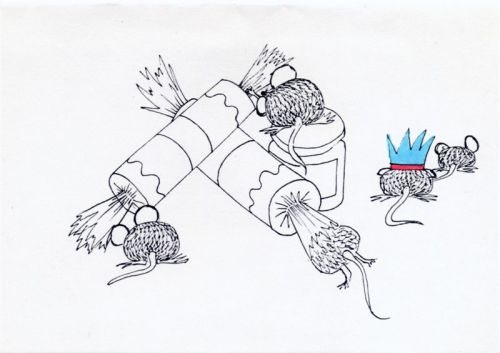 Each year I have also had cause to send cards to contacts where the relationship has taken some form of a knock. The card is, I suppose, a form of peace offering, a reaching out to say that things don’t always have to be difficult, without necessarily putting it into words. Some of these have been awkward to do, many have felt courageous, but to date all have been extremely well worth doing. It is something that I would recommend for anyone to do as it is also cathartic.
Each year I have also had cause to send cards to contacts where the relationship has taken some form of a knock. The card is, I suppose, a form of peace offering, a reaching out to say that things don’t always have to be difficult, without necessarily putting it into words. Some of these have been awkward to do, many have felt courageous, but to date all have been extremely well worth doing. It is something that I would recommend for anyone to do as it is also cathartic.